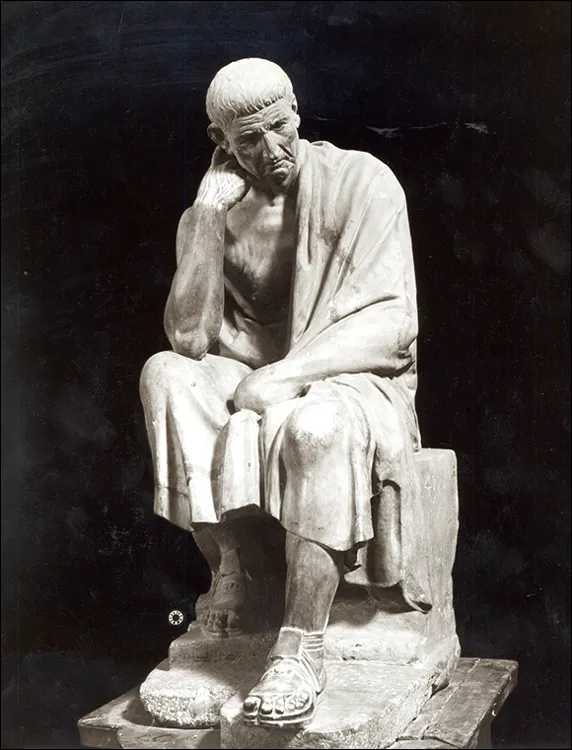
Political Science For Dummies
Marcus A. Stadelmann
- English
- ePUB (disponibile sull'app)
- Disponibile su iOS e Android
Political Science For Dummies
Marcus A. Stadelmann
Informazioni sul libro
Expand your political science knowledge with a book that explains concepts in a way anyone can understand!
The global political climate is dynamic, at times even volatile. To understand this evolving landscape, it's important to learn more about how countries are governed. Political Science For Dummies explores the questions that political scientists examine, such as how our leaders make decisions, who shapes political policy, and why countries go to war. The book is the perfect course supplement for students taking college-level, introductory political science courses. Political Science For Dummies is a guide that makes political science concepts easier to grasp.
- Get a better understanding of political ideologies, institutions, policies, processes, and behavior
- Explore topics such as class, government, diplomacy, law, strategy, and war
- Learn the specialized vocabulary within the field of political science
- Help prepare for a range of careers, from policy analyst to legislative assistant
Political science crosses into many other areas of study, such as sociology, economics, history, anthropology, international relations, law, statistics, and public policy. Those who want to understand the implications of changing political economies or how governing bodies work can look to Political Science For Dummies. It's the book thatcuts through the jargon as it focuses on issues that interest readers.
Domande frequenti
Informazioni
Understanding Political Science
Discovering the Discipline of Political Science



Looking at Politics and Political Science
Going back to the history of political science

Being a part of the social sciences
- Sociology: The discipline of sociology studies human beings and how they interact. Sociology focuses on how small and large groups form and become large organizations, even nation-states. Political scientists use sociology to explain the behavior of small groups, such as members of a parliament, and the creation of large groups, such as nation-states. In addition, studies are conducted on how people acquire and maintain power within groups.
- Economics: The discipline of economics is important for the political scientist. Economics and politics often intersect. The political scientist uses economics to examine government programs such as social security or to discuss international trade agreements or even punitive sanctions.
- Anthropology: Anthropology is the study of ancient and modern-day cultures. The discipline is useful for political scientists when conducting culture studies (see Chapter 3). Anthropology allows the political scientist to compare processes, norms, and institutions in different societies. For example, political scientists for decades have studied cultural aspects that maintain or destroy democracy in a nation-state. Also, as Chapter 12 shows, certain cultural traits can make societies more aggressive and warlike in the international arena. Anthropology helps find these cultures and hopefully change them to prevent global conflict.
- Psychology: Psychology studies the way human beings think and behave within the national or international system. The political scientist can use psychology to analyze people, studying voting behavior in countries or examining the leading politicians in different countries to see how and why they make certain decisions.
Being fragmented
- American politics: The study of American politics involves studying American political institutions such as Congress or the presidency, as well as local or state governments. For example, the study of Texas politics falls into this category. Further, it includes the role of political parties and interest groups as well as the American electorate. Today, subfields within American politics have developed. They include public administration, which studies bureaucracies; public policy making; and the role of courts, which looks on the evolution of the constitution.
- Comparative politics: Comparative politics studies other nations and cultures. It creates theories and frameworks that explain why and what happens and then identifies similar patterns and differences between political systems. Comparative Politics compares, for example, American culture to Swedish culture or looks at the voting behavior of Australians and compares it to U.S. voters. In addition, comparative politics studies various forms of governments (authoritarian, totalitarian, or democratic) and creates theories or concepts on the foundations for democracy (see Chapter 3).
- International relations: International relations studies relationships between nation-states. It looks at international conflict, diplomacy, and international organizations and discusses issues such as human rights and terrorism. It also has two subfields: international political economy, which analyzes how economics and politics impact each other, and foreign policy studies, which looks at the interaction of countries with foreign nations.
- Political theory: Political theory studies the great thinkers of the past and present. Most political scientists believe that the great Greek philosophers Aristotle and Plato set the foundation for political science. Political theory studies how and why people behave in a certain way politically and develops theories about the nature of people, the nature of liberty and freedom, ethics, and the role of the individual within a political system. It further includes studies on political ideologies, such as fascism, communism, and the various types of democracies.

